Cyberpunk 2077 Lore and Story Critique
Technical condition aside, Cyberpunk 2077 may be considered a disappointment. The game arguably did not fully tap into the potential of the genre. It's time to answer the question: how much cyberpunk is there in Cyberpunk 2077?
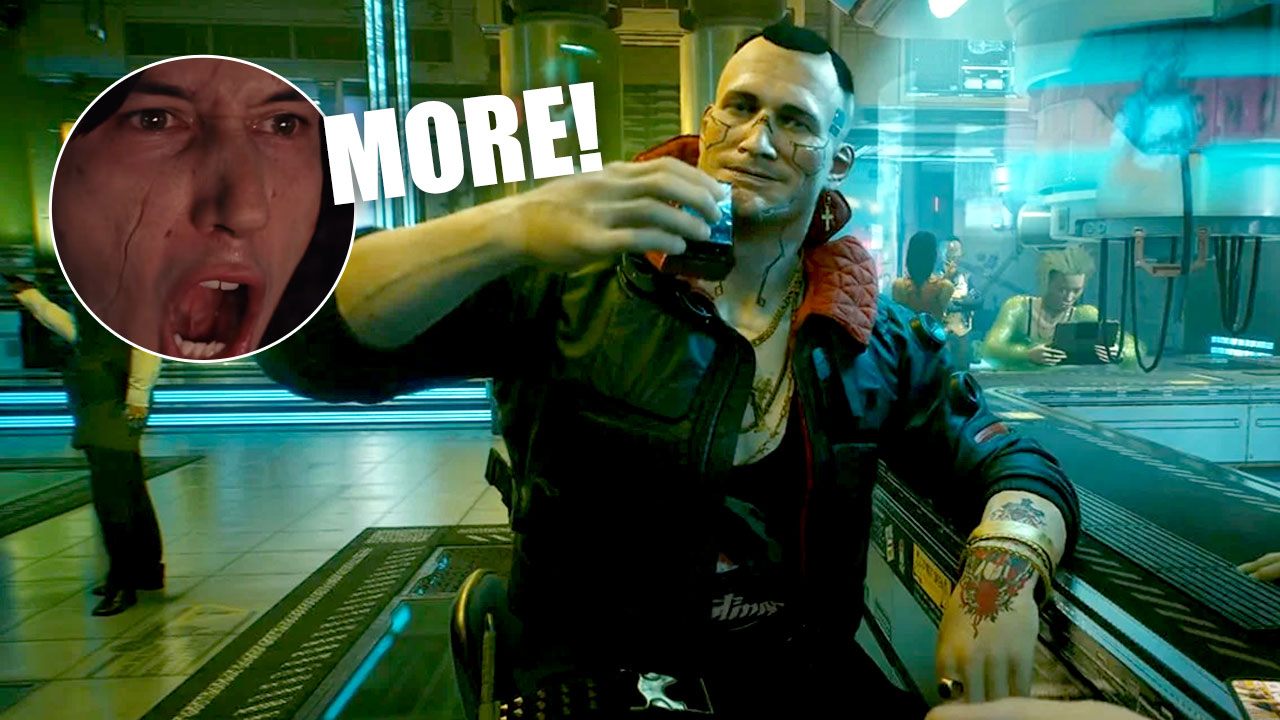
IMPORTANT NOTE
The text contains spoilers from Cyberpunk 2077, Shadowrun: Dragonfall, The Witcher, the books Neuromancer, Awakened Furies, and the anime Ghost in the Shell.
My predominant impression after completing Cyberpunk 2077's storyline was disappointment. Not the kind you that you may feel after an exquisite dish that you'd like more of. Rather, the kind you feel after ordering said exquisite dish, but ending up with a subpar appetizer, with the waiter reciting a poem about how supreme a meal you’ve ordered. Might not be what you wanted, but at least it was entertaining.
But, you know, some people feel cheated.
And I'm not even talking about the abhorrent technical condition of the game on last-gen, nor the game's largely flat mechanics – I only mean the story. My hopes started achieving the med-high range about the time news broke about content getting cut from the game, which incidentally was also the moment the advertising of the game really picked up the pace, sending somewhat confusing signals (such as announcing the possibility of selecting penis size in the character wizard – and even here, I was hoping to get a slider of considerable range, but ended up with two, limp, pre-defined sizes) – and that's basically the paradigm of this game.
There was one area, though, in which I hoped to see the game as a coming messiah. The collaboration with Mike Pondsmith, the creator of the original RPG system, warranted hopes that "the dark future" would be grim, gripping, and twisted. Further, CD Projekt's previous story-telling feats invited the hope that the plot would be serious and gritty, the atmosphere would go hand-in-hand with compelling characters, thrilling side quests would neatly expose us to the lore.
I wasn't hoping for anything more than a game that was correct on the mechanical side, but I did hope for a storytelling masterpiece.
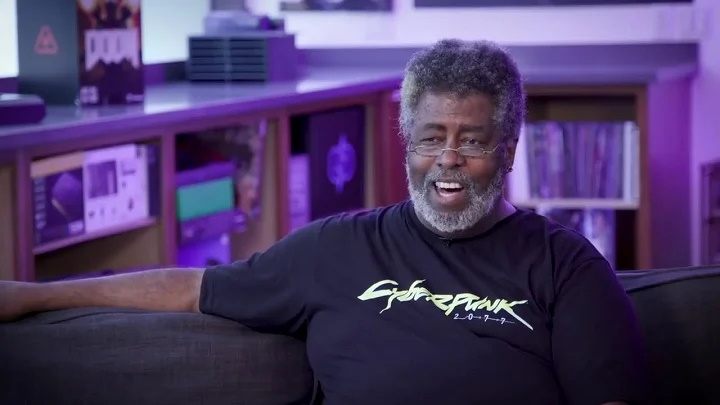
Waiter, that’s not what I ordered
Disillusionment came horribly late, but it did so abruptly. After a rather impressive, yet disappointingly insignificant introduction based on the character's background, and a few initial quests, Night City stood open. Or rather: one if its districts did – one probably most reminiscent of a typical gangsta’ story. Activities included helping "the boys" get rid of a hostile cell, aid the overwhelmed, underpaid, and stressed out NCPD officers in their heavy warfare against local goons, or participate in a Corleone-style proposition giving. It was all enjoyable, slick, and fun, and while playing, I really felt strong GTA vibes.
…HERE WE GO AGAIN
Remember the line? Ditch CJ for V, and the bike for Archer Hella EC-D i360, and you get the street kid prologue in Cyberpunk 2077.
Except it's not a remake of GTA: San Andreas. This is not the kind of story I expected from a game based on the Cyberpunk 2020 system. The one where it's always raining, where style is always above substance, attitude is always everything, and you're constantly living on the edge. The one whose story is about fighting the system in a dehumanized world, rather than helping thy neighbors.
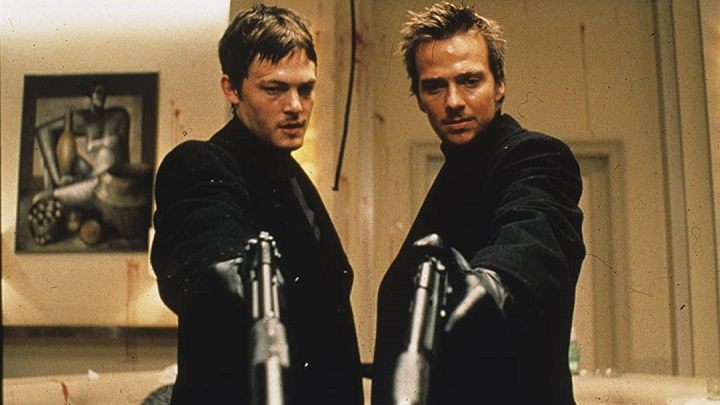
A significant portion of the side quests could just as well play out in a contemporary setting. The crux of cyberpunk is not the adventures of petty criminals. The nihilistic convention of No Future is more than just a stylistic device. It's derived from the underlying problems – the loss of humanity in the world of technology, ecosystems falling apart, economic systems exploiting the workforce by ever-greedier corporations.
Cyberpunk was created as a rather pessimistic vision of the future – and an interpretation of the presence – and in my opinion, it only makes sense to refer to this genre in contemporary context. It doesn't necessarily always have to be a sad tale about the futility of existence. There's plenty of humor in cyberpunk stories, such as some of the miniatures in the Love, Death, and Robots anthology, but unless a significant part of the plot is drawn from the very roots of the convention, the whole environment becomes redundant.
There's obviously plenty of content in Cyberpunk 2077 that fits the aesthetics well, the problem is that the game barely scratches the surface of most of these problems. And if there's a hint of more than that, it's still smothered before it really gets going, as if out of fear of accidentally meaning business.
OR IS IT BUSINESS?
Perhaps the ultimate middle-of-the-roadness of Cyberpunk 2077's plot is a conscious production decision. After all, it's a mega-production with an unprecedented budget, aimed at mass audience. It would be a shame – especially for investors – if it ended up making disappointingly little money, as was the case of... Well, every strictly cyberpunk production in recent years. Blade Runner 2049 was a financial failure despite critical acclaim. The new Deus Ex trilogy, enjoying quite brilliant reviews didn't even get the third game, so isn't even a trilogy. Alita Battle Angel, despite sporting a plot that seems relatively digestible for mass audiences, getting a reasonably warm reception, and ending in a way that outright demands a sequel, currently remains an abruptly severed story, with a possible sequel having the best chance, as rumor has it, of being released on streaming.
While it's sad, downright depressing to me personally, it seems to be a fact that cyberpunk sells poorly. Perhaps that's why there's more of it in the title than the story.
What’s the evidence? The starting point of my argument is Alt Cunningham's thread, which was basically cut short the moment it was introduced to the story. After her quest, one of the most interesting characters in the game practically disappears until the very grand finale, where she turns out a poorly justified deus ex machina, giving us the Arasaka Tower massacre and then a not-so-inspired exposition. All the while being the perfect material not so much for a developed character, but even a whole separate game!
There’s so many questions without answers: Who is she really – because she says several times that she is not "this" Alt? What is her goal? What are her morals? How does her perspective differ from the human one? What happens to the constructs she absorbs? Does this process resemble death? Or do they retain some measure of autonomy? These are just some of the veritable dozens of questions that popped into my head. Most importantly, though: why, with a cybernetic wraith character having next to godlike powers, did the screenwriters keep her in the closet for the entire game?
The same goes for Blackwall, the buffer that separates the wild part of the Net from the rest of the world. It's a thread intriguingly hinted in the conversation with the NetWatch cop, and then masterfully wasted in the cut-scene with Alt. And that's basically it. Let me remind you that we're dealing with a parallel reality inhabited by wild artificial intelligences that, by way of natural selection, have struggled for dominance for decades in their habitat. I understand that it's a kind of terra incognita in the lore, but one could arguably use it for at least a few good stories without fully letting the player into the very mystique of that place. Say, a story about a fugitive from behind Blackwall that needs to be found and eliminated. Or netrunners trying to get behind the Blackwall, with tragic results, of course, converting their headquarters and dins into full-fledged digital haunted houses. Corporate R&D teams testing software to communicate with non-human AIs. Stories practically write themselves.
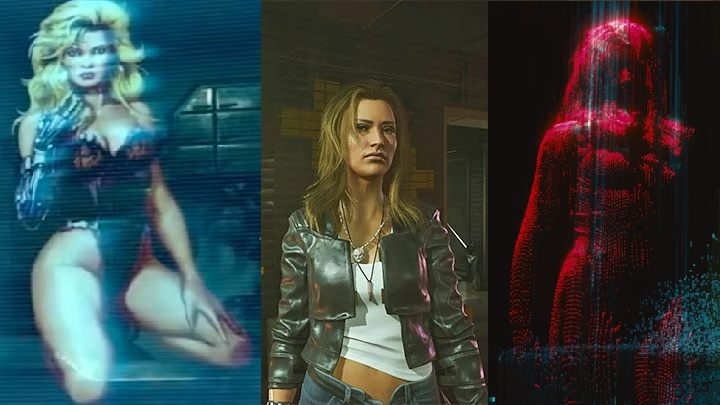
Transhumanism gets a little more attention. Soulkiller is central to the plot, Silverhand's relationship with V got quite a bit of screentime as well – everything seems fine in this respect. And yet, I still felt there was little coming out the other end. Yes, Johnny is stuck in the main character's head, talking to them, sometimes taking over, and the parts of the story where we confront the process of slowly becoming himself are some of the best in the game. What I missed, however, was some semblance of reflection upon the problem and its implications. What does it mean for humans? Are we just a heap of data, zeroes and ones? If it was possible to actually overwrite a person's consciousness with that of another one, would the result be a mix of both people? Or maybe one of them – but then what would determine which one? Of course, these are questions you can ask and answer yourself, and some will consider the game's failure to articulate them a subtlety rather than a major setback.
But then, video games in general are optional.
PLOT HOLE THE SIZE OF JACKIE WELLES' BICEPS?
The problem with both the Silverhand and Alt's story arches is that if you think about them for too long, it will turn out they both go nowhere. For most of the game, I was sure I was looking for a way to bring Silverhand back to life and reclaim V's body. However, when it came to the ending and it became apparent that it was basically just a matter of chipping in to the tune of Chippin' In and blow Arasaka to dust, I began to wonder: What was the point of all this?
We basically had everything we needed after completing the mission from Alt. And by "everything" I mean: Alt herself, paired with Silverhand's hatred of corporations. This was enough to run a version of the ending in which Johnny and his undead girlfriend storm Arasaka Tower. Everything else was an unnecessary complication of an essentially simple plan. Working with Hanako contributed nothing but an unpleasant episode of being a guinea pig, and forgoing the aid of the nomads would certainly be appreciated by Saul.
I won't just be complaining, though. It's not that the game doesn’t feature some brilliantly executed cyberpunk themes. One of these, for example, is the case of the politician whose opinions were literally implanted in his head by a corporation. The plot is not particularly extensive, but due to the dilemmas and ambiguities, it hit home like few others in the game. Not only did it beg the question of how deep we're able to stick our fingers into the mind, but it also forced us to make a choice. The player must decide whether to reveal the whole affair, without knowing the consequences, without even knowing if the victim would even believe their words. Or perhaps you can ignore the whole affair? And if so, what kind light does it shed on the entire government of Night City? Who can be trusted? Should an unwittingly corrupt person still be considered corrupt?
Some of these questions are never asked, but they are implied, much more skillfully than in the entire thread of Johny Silverhand. The game requires you to ponder over these matters, so that the choice you make is informed, not random. It reminds me a bit of the ending of the first act of The Witcher, when, unsure of who was right, we had to decide whether to side with the witch or the peasants. Sure, hopes of getting the Abigail romantic collectable card may have influenced the decision, at least in case of the horny lot, but the tension generated by the story itself was truly spectacular!
THE GOOD ENDING
The conclusion of the plot and the dilemmas posed are emotionally engaging at first glance. Who has the right to the body? Johnny or V? Is it better to die in the real world, or be consumed by the demented memory of Alt Cunningham? Both issues sound very dramatic... Until we realize that they have no meaning.
All the endings in Cyberpunk 2077 are basically bad. V is doomed to die or be absorbed, and Johnny can still parasitize someone else's body, in addition to those two options. Except that all of this can be avoided. It would be enough to give the body to Silverhand immediately after hitting Mikoshi. The Relic would take hold of another body. What about V? Well, why not back them up on a pendrive? Since Silverhand's huge ego fit on a chip along with all the mind-uploading code, there should be plenty of room for the modest persona of V. The main character can basically wait any length of time in this form until the technology is developed to create synthetic bodies into which their self could be transferred.
Everyone survives. Wake the f up, Samurai, we have a good ending to make.
What about punk?
Since the cyber theme is vastly underrepresented, perhaps the game makes up for it with punk? Well... it's even worse here. Punk meant much more in the original than allowing players to become rockstars. While the punks of the 1980s had razorblades attached to their heavy leather jackets, those in Pondsmith's 2020s would get vampire teeth implants, and replace their fleshy arm with a chrome blade. The original took every more rebellious idea and distilled the pure essence of craziness from it, then cast it into the extreme environment of the dark future. The manual makes it clear that running a session in Cyberpunk 2020 is a constant battle; a rebellion against an unjust, failing world. A cocktail of sex, drugs, and rock and roll seasoning of violence, often mixed in uncomfortable proportions.
What does it look like in CD Projekt Red's interpretation? Well, most of the characters are just amiable fellows living their lives. They do not feel the need to rebel and fight against the system, and most of their actions are directed not at changing the world, but at taking care of their personal business and security. V, on the other hand, rides loose from marker to marker, undisturbed by anyone, sticking out in the world like a sore thumb. And even if a gang, or a random encounter, comes up along the way, we dispassionately murder and collect loot, as if it was Borderlands on steroids. There's no sense of danger; there's zero living on the edge. Even the idea that players are homeless street kids who carry all their earthly possessions in a backpack, strongly emphasized in the first chapters of the Cyberpunk 2020 manual, has been completely forgotten. A street kid? Please, I own numerous apartments and change cars like they were socks, I have so much money I don’t know what to do with it.
However, it is a tad better than the science-fiction threads. While those were realized with varying degree of love and quality, they always left me unsatisfied. Only on the plain of sociological issues did the devs show their colors. I'm talking about the scenes when Johnny Silverhand takes over. This man has more life in him than all the other characters combined... Even though he's dead. When Keanu's character takes the helm, the game suddenly goes from being a rushed marriage of Grand Theft Auto and Far Cry, to a wild, no-seatbelts chrome-rock fucking ride, if you pardon my French. Silverhand, like a true cyberpunk, lives on the edge, is perpetually getting into trouble, and acts out aggressively with style, confidence, and hatred of corporations that I would like to see in the main character.
He's seemingly having a great time with it all, but you can see that it's just a pose. That's all lined with the bitterness of a person not fitting the world they live in. Johnny is, underneath all the glamour of a faded rock star, basically a wreck, snatched out of the history's cryo bed, bereft of a future – and still, his passion burns as bright as ever. I think this is what Pondsmith had in mind when he wrote 30 years ago that Attitude is everything.
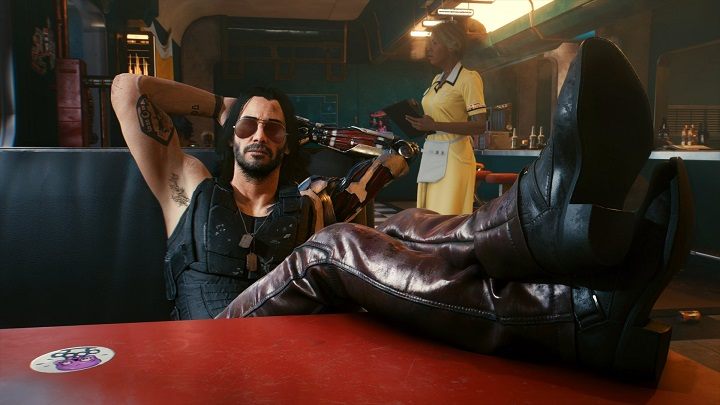
Cyberpunk 2077 shows chrome teeth every now and then. The problem is that it does it far too seldom to get away with disappointing me as a fan of the genre. And when it does, I get a strange sense of déja vu. Here, we come to another, perhaps much larger problem – repetitiveness.
